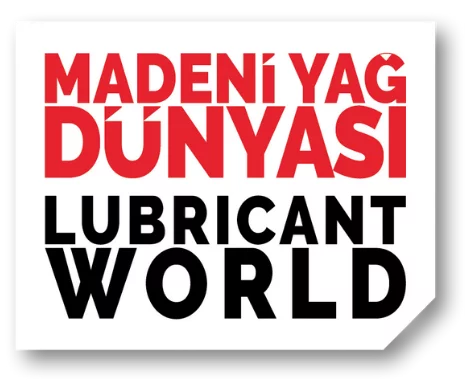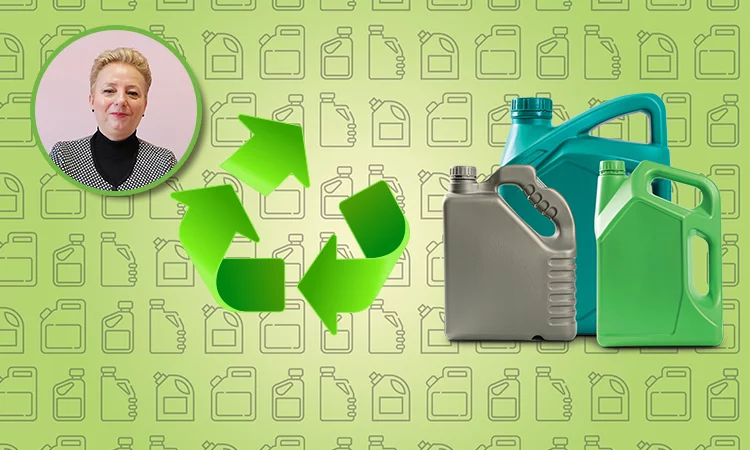The lifecycle of hydrocarbon-based lubricating oil, including its packaging, causes both financial and environmental costs until it reaches the consumer. The lubricant and its packing, once they have reached the end of their useful life, incur significant environmental costs. When we refer to the lubricant and its packaging as waste, we still have hydrocarbon, or in other words, a valuable raw material in our hands. While the production of lubricant and its packaging is dependent on imported resources, used lubricant and packaging become our domestic source.
By conducting Life Cycle Assessment study, we can quantify the environmental costs of hydrocarbon-based lubricants and their packaging, and take measures to reduce all environmental impacts, initially Carbon Footprint (CF) and Water Footprint (WF). Packaging holds a distinct and significant position in this cycle. Because packaging has a direct and significant impact on the toxicity, ecotoxicity, respiratory organics and inorganics, radiation, ozone layer depletion, land use, acidification, eutrophication, biodiversity, fossil fuels, minerals, soil-water-air pollution, climate change and damages to human health, ecosystem quality and resource depletion caused by the lubricant consumed, it has a multiplied effect on these damages. In summary, for the sake of our beautiful planet and the health of both humans and nature, sustainable production and consumption should be achieved by minimizing the effects of packaging through the results of Life Cycle Assessment. In this regard, the chemical industry and we, as chemical engineers, have a great responsibility.
After depleting our planet’s resources in a linear “produce-consume-dispose” model, the best waste management practices such as waste prevention, minimizing waste at the source, reuse, recycling, recovery and prioritizing disposal allow transition towards a circular economy and waste products to be transformed into resources and energy. Waste disposal should be the last resort and only preferred in necessary circumstances. It is indeed an undesirable final stage. Today, it is important that waste has an economic surplus value as a raw material in the production-consumption chain with almost zero waste target in the circular economy. In the circular economy high value-added products are obtained from waste through upcycling. As the lifespan of waste extends, the inputs and products used in production also become more durable. Knowing the chemistry of the waste and the creativity are essential from waste to art and from waste to product processes with upcycling. In this context, Life Cycle Assessment and packaging eco-design gain importance, while the creation of value through waste packaging in the circular economy is indisputable.
The pathway to achieving competitive industry and a circular economy that reduces greenhouse gas emissions, as defined in the strategic vision and climate goals of the European Union (EU) for 2050, is encompassed within the European Green Deal roadmap, through “A New Circular Economy Action Plan for a Cleaner and More Competitive Europe, COM(2020)98”. According to the Green Deal Action Plan of Türkiye dated July 2021, the concepts of Life Cycle Assessment and Eco-design are defined under the title of “Green and Circular Economy”. There is the 12th Development Plan for the period of 2024-2028 and the ongoing Climate Change Action Plan and Circular Economy Action Plan. Circular economy means double gain. It is beneficial both in terms of financial costs and for the planet. The European Union (EU) predicts significant benefits from circular economy, including an annual profit of 600 billion euros, a 20% reduction in production inputs, and projected decrease of 500 million tons of greenhouse gas emissions by 2035. The fascination of these figures also awaits our beautiful country in the lubricating oil sector and waste management industry. We need to work hard. In this trajectory, functionality and eco-design gain importance in lubricating oil packaging, while circular economy is rapidly advancing for the best supply chain sustainability management. Sustainable Packaging Coalition (SPC) that claims “For People+Planet” is the leading voice on this issue. To follow-up eco-design, recycling labeling, standards, database, awards; visit https://sustainablepackaging.org.
New material options in lubricating oil packaging, reduction of plastic waste, use of recyclable packaging materials, lighter packaging to reduce freight costs, innovative designs, and flexible packaging are prominent topics in the industry. Packaging, storing, and transporting lubricants using plastic and metallic materials such as aluminum, including boxes, bottles, cans, drums, and containers, is crucial. User-friendly packaging should be made climate-friendly in a circular economy. It is feasible to achieve this goal. Lubricants are present everywhere, and developing new solutions for packing should be the new objective for our organizations.




